In a world that keeps changing, there is no longer an instruction guide showing you how to act. Instead a company’s vision needs to act as the compass, or “bussola” as the Italians say, guiding them through previously unchartered waters, Chief Human Resources Officers (CHRO) in Italy told Egon Zehnder during two recent digital gatherings.
Little visibility on how the crisis will evolve makes it hard to decipher the current situation and understand how to react, or indeed plan ahead. The COVID-19 crisis renders short-term measures equally as important as strategic long-term plans. However, it remains vital to strike a balance between vision and visibility, using “bifocal glasses” to continue to plan for the future by devising strategies to overcome difficult times ahead, while simultaneously focusing on the present, advises a CHRO.
Prepare for the Unexpected
More change is ahead. From now on, leaders will need to be courageous, forward-looking and above all flexible to deal with uncertainty as a constant. Likewise, HR departments will need to be agile to quickly reshape processes and organizations to respond to rapidly changing scenarios, says one HR executive. “You can only respond to a black swan event with flexibility and the capacity to remain fluid.”
Looking at HR strategy, which areas of HR will become the most important over the next 12 months?
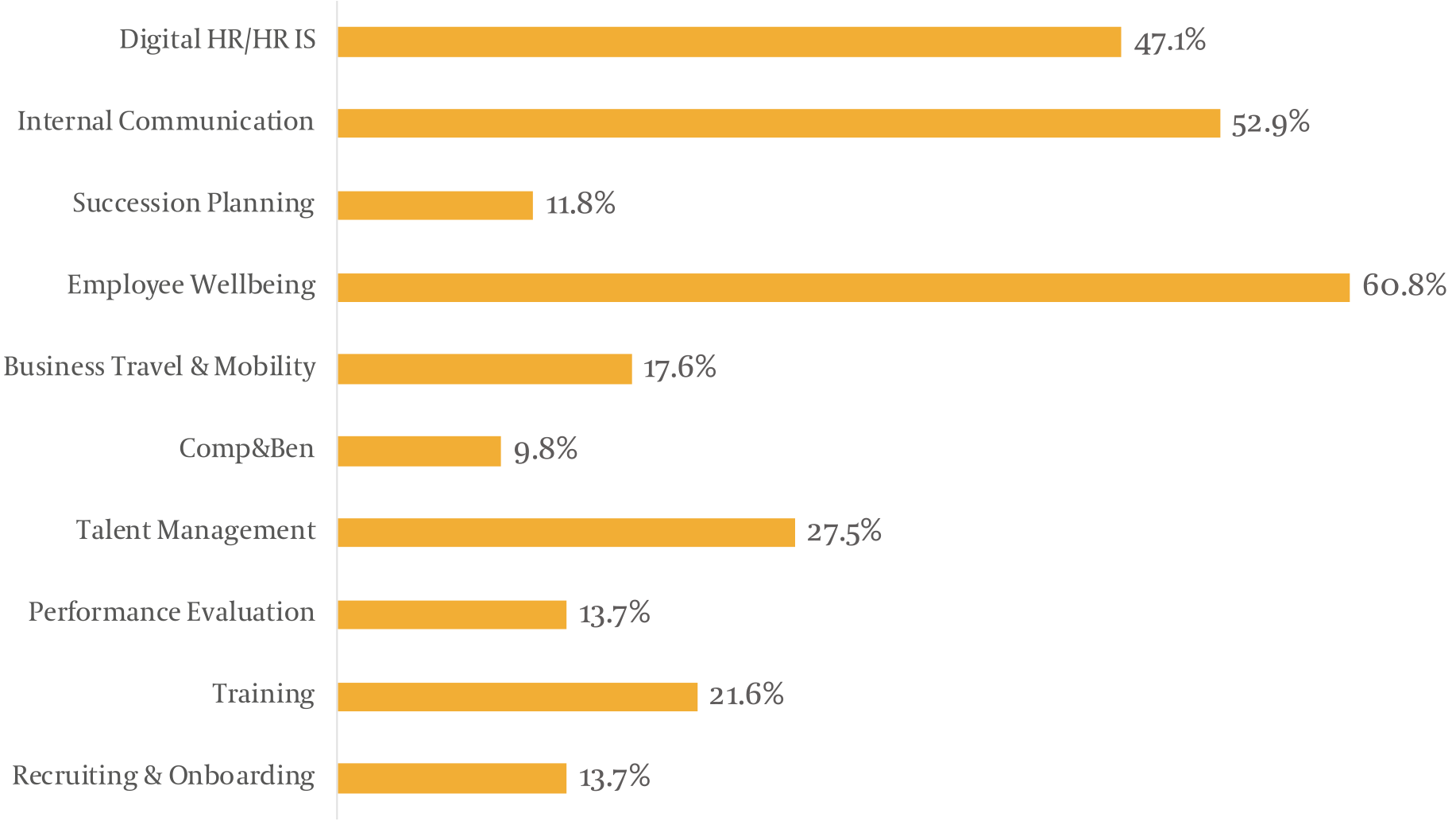
The only real way to prepare for the unexpected is by destructuring organizations and replacing them with flexible organizations, free of rigidity and bureaucracy, advises one HR executive. A new type of organization needs to be born, comprising a sum of connected individuals, few clear guidelines, and plenty of delegation. The ability to manage swift decisions will make all the difference.
Fostering delegation and initiative at every level of the company will maintain high engagement levels. Some companies’ engagement levels have been helped by management decisions to cut executive salaries to ease the suffering of lower-ranking employees. Such moves help foster employment branding and strengthen long-term employee retention. At the same time, encouraging fast decision making and empowerment is boosting problem solving and innovative solutions at all levels.
The Birth of a New Humanism
The core importance of HR, which is currently so instrumental in safeguarding staff wellbeing, will continually rise to the fore as we navigate a new corporate world. “HR takes care of people and this is an opportunity for us to be heard in a different way,” says one CHRO.
At the same time, HR needs to remain both “strong and generous” to support and sustain the changes ahead. “We will need to work with new energy that has been generated and at the same time inject the new ingredient of trust because that’s what organizations, or communities, will really need.”
In future, individuals will need to be placed at the heart of each organization. This will go hand-in-hand with the rise of a new leadership, which is more inclusive and attentive to individuals and their needs, predicts one senior HR executive. In the words of one CHRO, “resilience comes from putting the person and flexibility at the centre of the system”. Or as another CHRO says, “a new humanism has to be born”.
Another HR leader refers to moving “back to basics” by creating greater empathy for people. Listening to people, regardless of their hierarchy, will play a far greater role in future, she predicts.
From now on, HR executives need to give priority to emotional welfare, rather than professional wellbeing and “we need a leadership class that believes in it”, one CHRO told Egon Zehnder. So-called “soft” skills, such as communication, empathy and resilience, which have proven to be fundamental for creating business value during the crisis, will assume a greater significance. These won’t be an alternative to “hard skills” such as planning, decision making and the implementation of plans but will assume equal importance in all facets of management.
HR executives will play a key role acting as custodians of this new culture, particularly when educating more traditional leaders.
The Only Way is Forward
Regardless of what lies ahead, there is no looking back now – only forward. Companies should use the negative experience of COVID-19 and turn it into something positive by simplifying structures and making HR processes more agile. As one CHRO says, “We’ve gained strong cultural change and demolished walls that have been erected for years. We don’t want to go back. This change will have to be guided and guarded.”
This transformation was long-needed, says another senior HR executive. “We’ve discovered that it’s more difficult to think about changes than to implement them. This situation has helped us to remove old mental patterns in the organization that have lasted too long.”
By introducing greater empowerment and accountability at different levels, COVID-19 proves that it’s possible to deeply rethink our organizations and streamline control-oriented middle management layers, says a senior HR executive of a financial institution.
The Smart Response
Meanwhile, COVID-19 has managed to demolish any doubts companies had about remote working. Technology is here to stay as the large-scale mandatory implementation of remote working across the country proves that it works.
Which opportunities for change do you see in the near future?
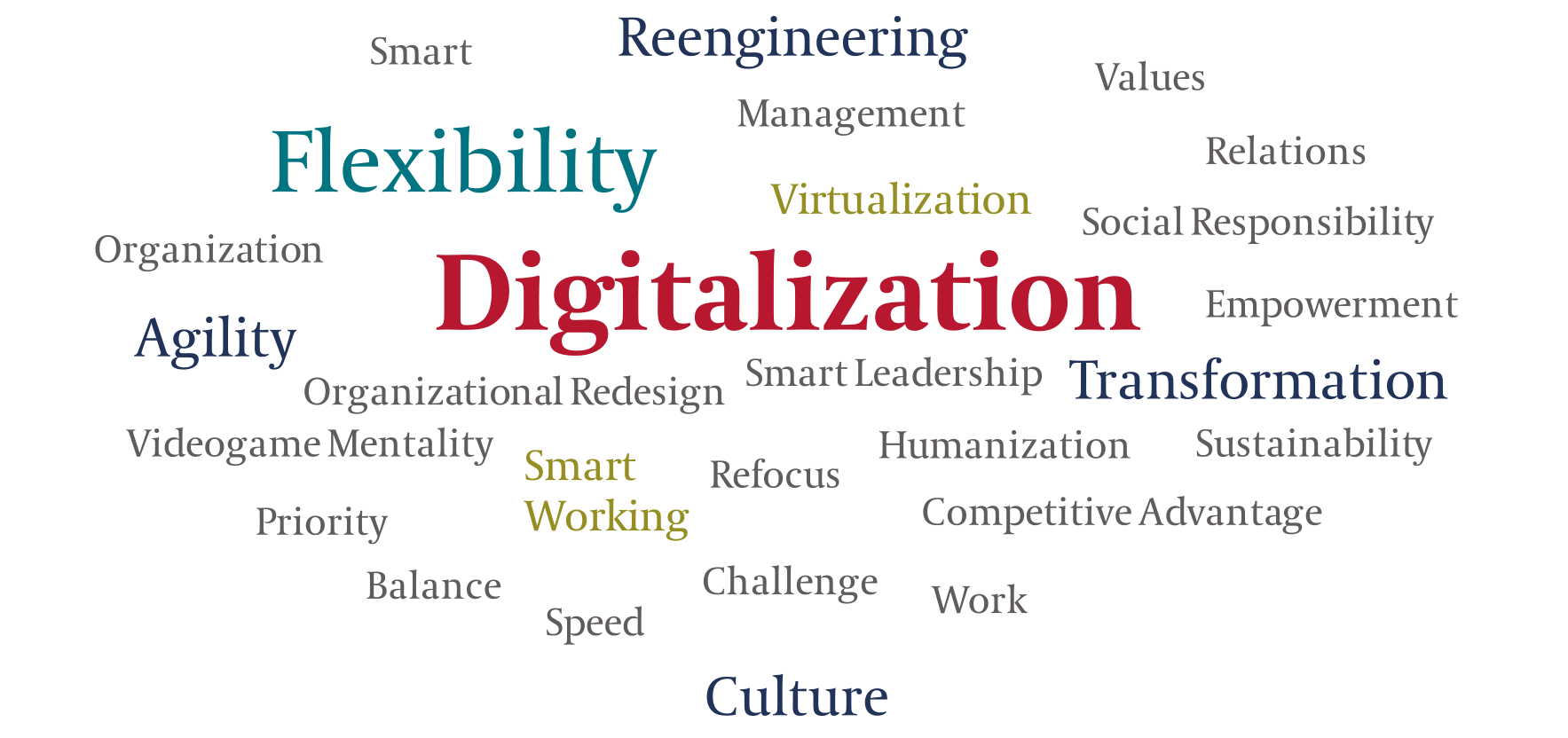
“They’ve realized that the organization is more efficient, and staff have proved to be flexible, working with fewer delays,” says one CHRO.
Which single word do you associate with the type of smart working experience that you would like to implement in the future?
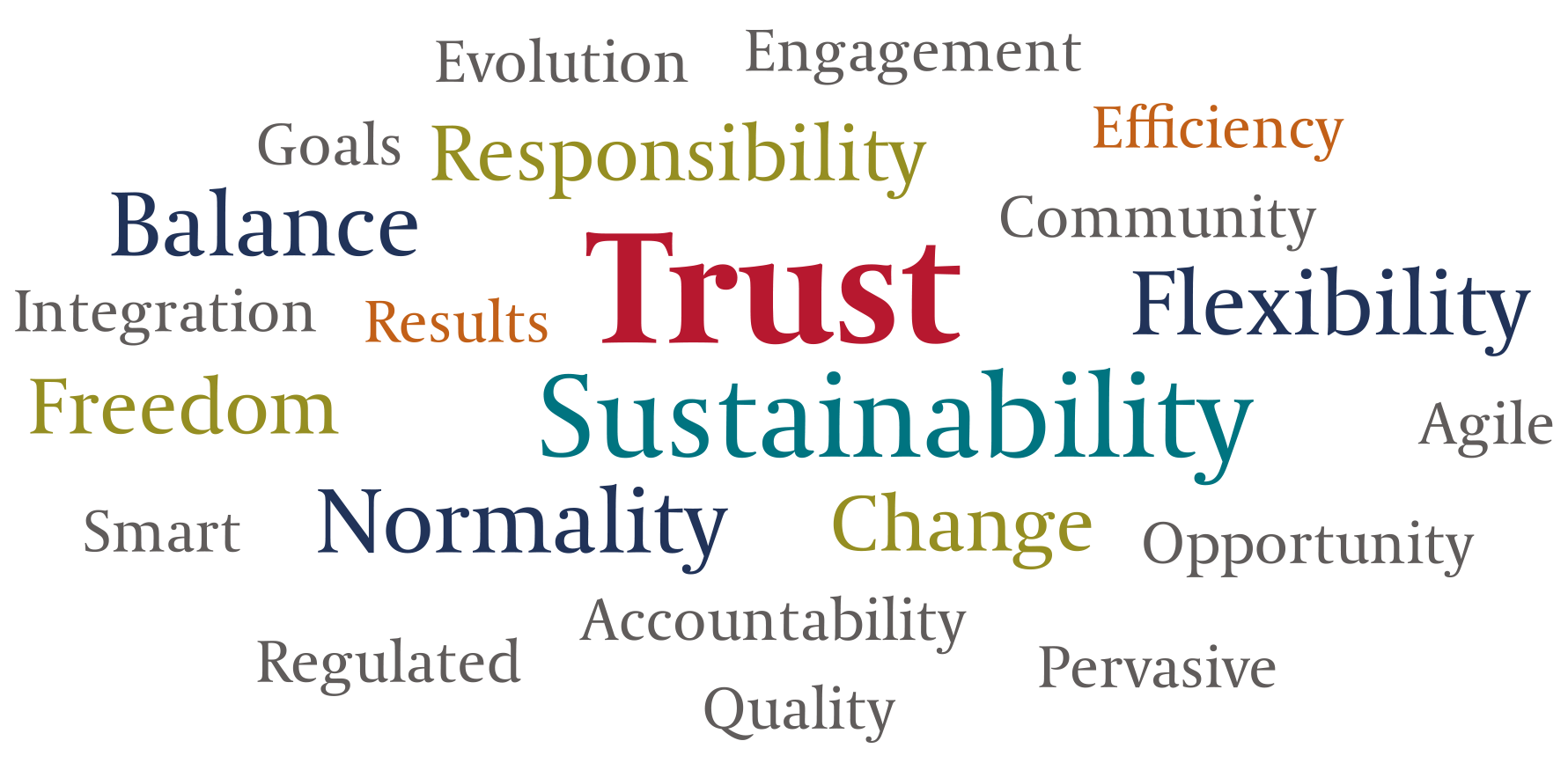
All CHROs agreed that this way of working will require leaders to empower, delegate, trust their organization and “overcommunicate”, while a “command & control” style will no longer be effective.
Which topics demand most time for you and your leadership team?
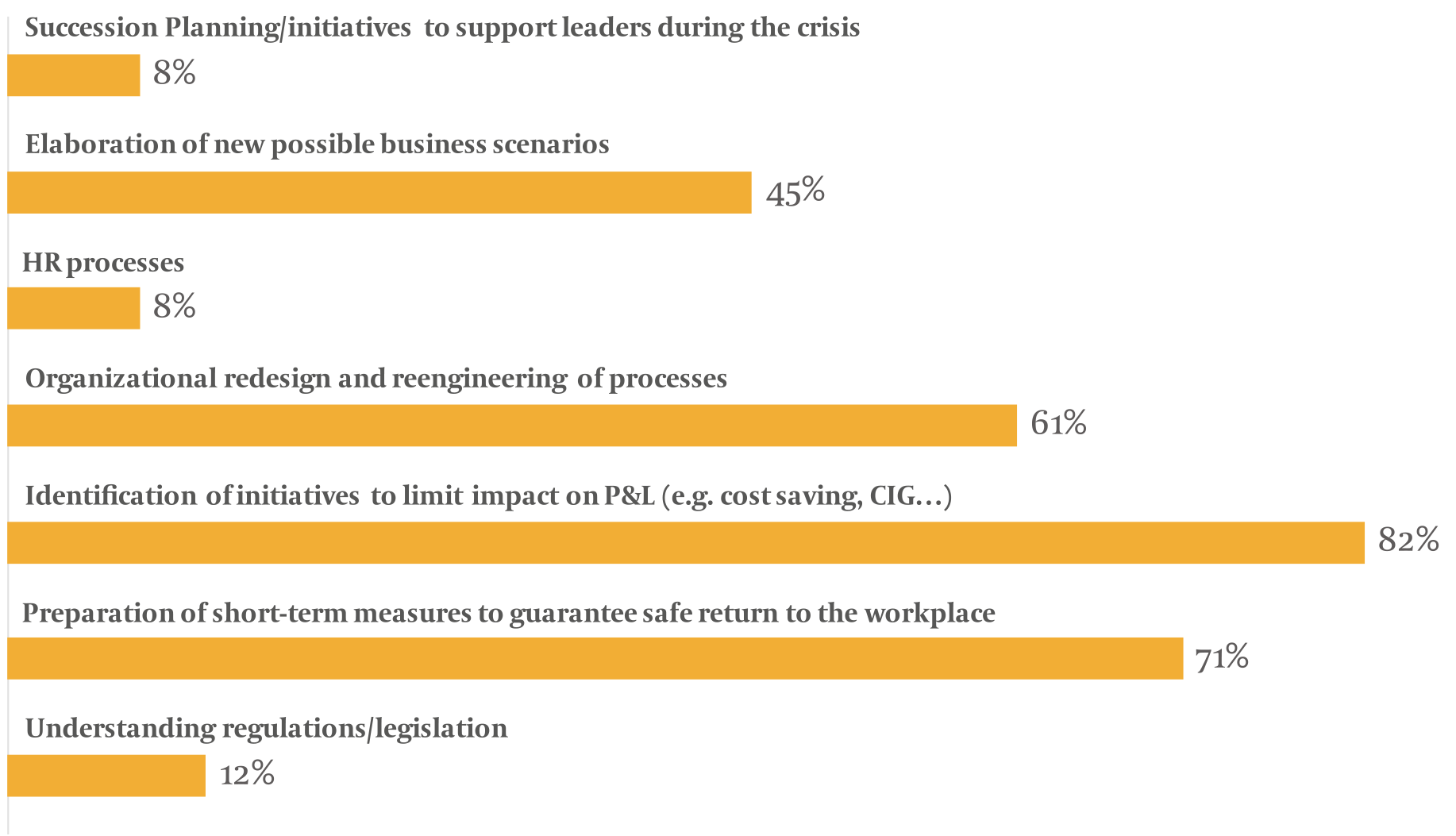
A greater emphasis on digitalization and smart working will have a strong impact on employee mobility, cross-border working and transfers in general, as well as travel. Moreover, many CHROs mentioned “geographical hedging”, namely allowing companies to reassign tasks to teams based in regions where the impact of the virus was lower, to ensure that certain activities still go ahead.
When talking about enhancing flexibility, a few CHROs explained the need for a more versatile reskilled or upskilled workforce, who can take charge in different departments when required. One company is developing its e-commerce business, and returning to phone-based sales representatives in recognition that its sales people will no longer travel as much they used to.
Many HR processes, such as recruiting and training, are also set to change. “We’ve learned from this experience that direct contact with people isn’t essential to build relationships of mutual trust,” explains a HR leader.
Keep the Trust
HR executives need to work on maintaining that new level of trust. HR acts a bridge between managers and people at risk, providing emotional and psychological support to employees impacted by COVID-19. One company offers free psychological support, while another provides virtual mindfulness sessions even for blue collar workers. Meanwhile, regular meetings and calls “simply to check in on each other” enforce trust levels and even create new energy and resilience, says a further HR executive, revealing, “it’s not a trend – there’s a collective need to be close.”
The real challenge for HR executives while battling COVID-19 is now to ensure the safety and emotional wellbeing of its employees while working at tight cost control.
Which leadership aspects require the most investment?
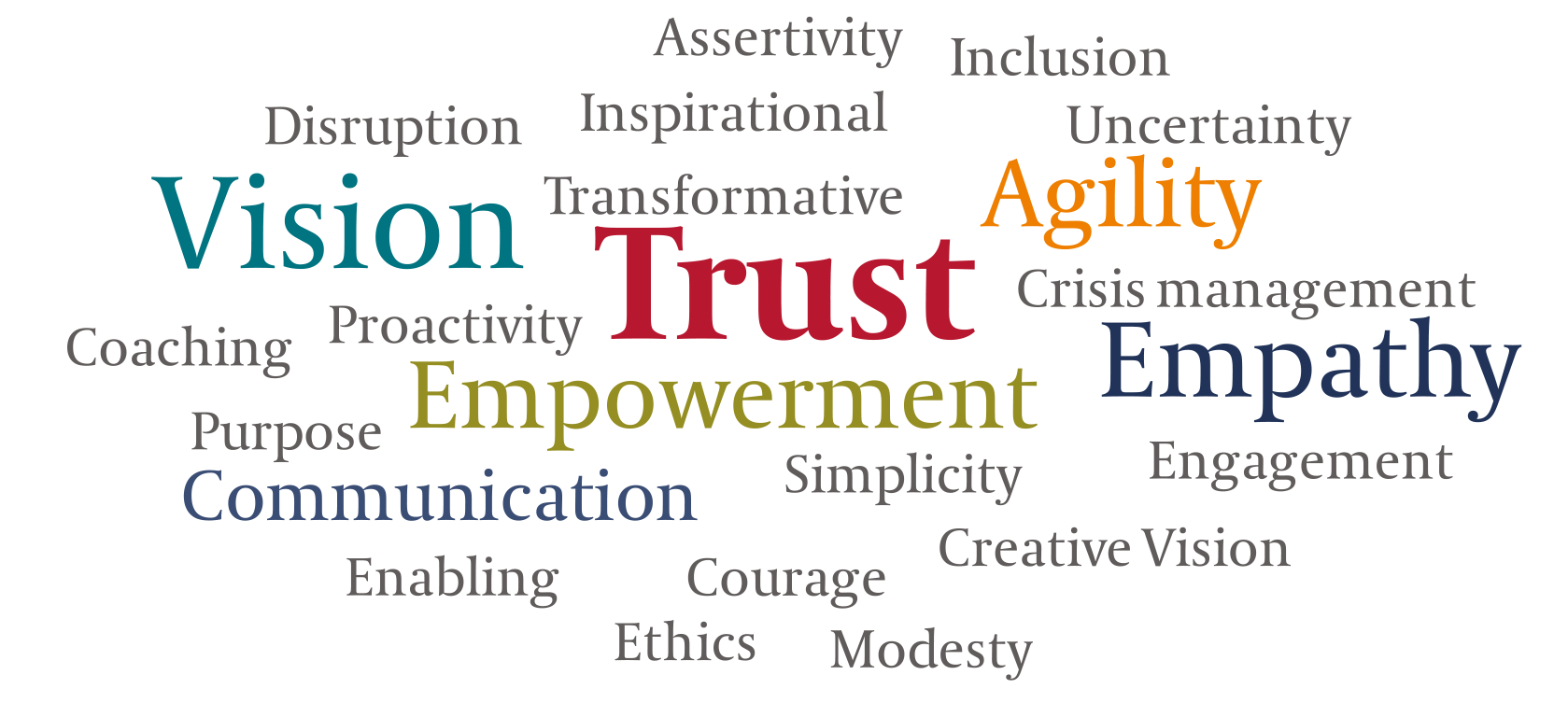
According to a poll survey during the workshop, Italian CHROs expect it will take around two years to recover from the economic impact of COVID-19. Regardless, everybody is committed to do their utmost to identify the most appropriate transformative steps to restart operations.
Every crisis also spells opportunity. Italian CHROs have already identified the chance for HR to play a more central role following COVID-19, with more agile decision-making processes and flexible organizations and a greater emphasis on soft skills. HR can emerge even stronger from this crisis.
What would you like to have achieved/accomplished with your HR team by the end of this crisis?
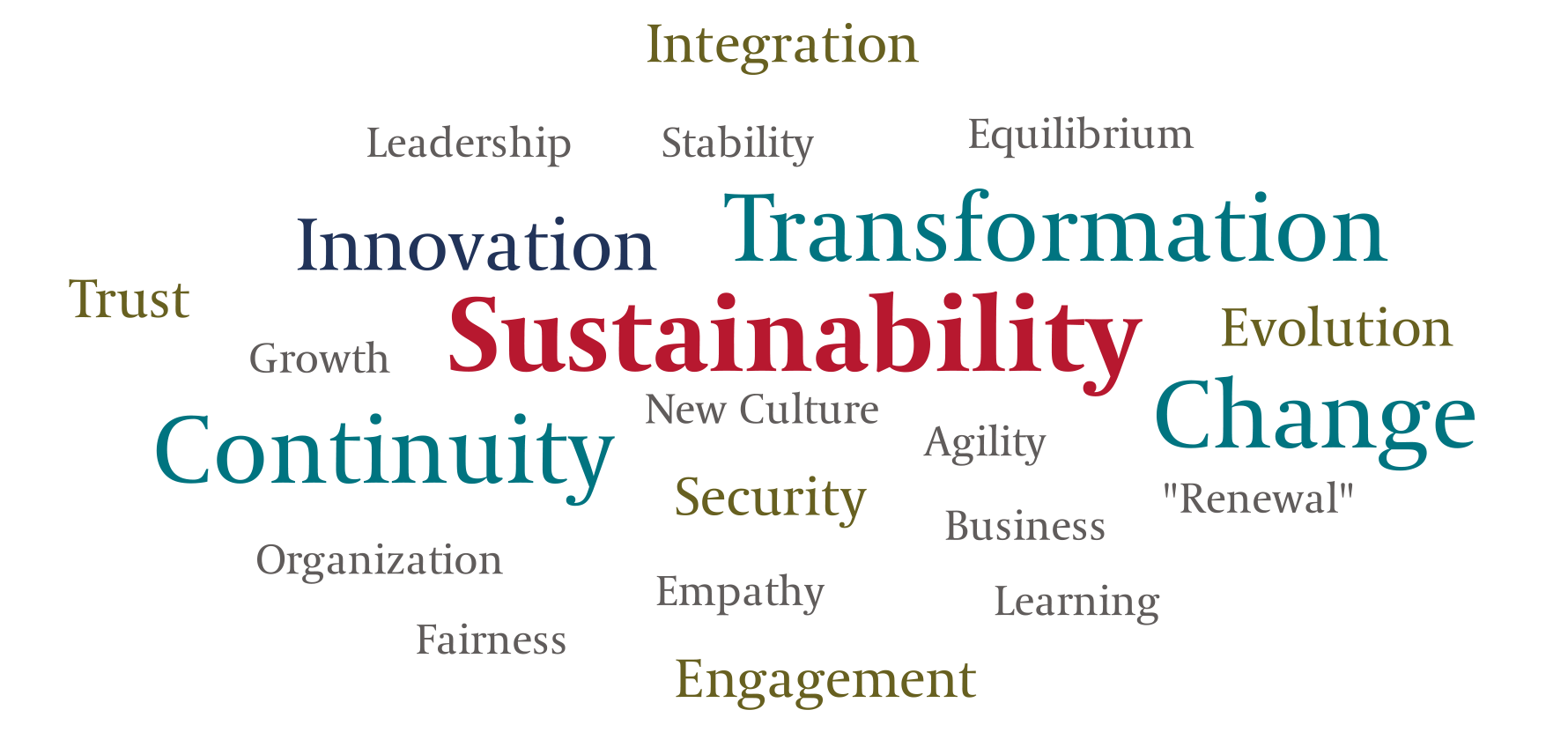
Charts and wordclouds are the result of an online poll completed by more than 50 HR leaders in two sessions.





